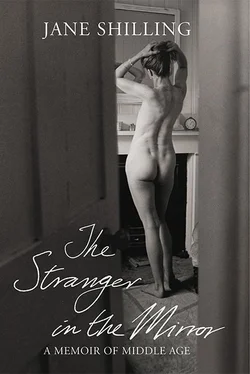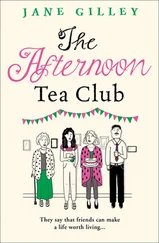Falling, falling, in love, out of love, the vertigo of emotional abandonment was something that I had relinquished as too risky before rediscovering it, on the cusp of middle age, in this less complicated physical form. There was something almost voluptuous, I thought, about the instant at which your point of balance hovered for a fraction of a second between disaster and recovery before tipping inexorably towards the earthwards tumble, the ground rising fast and implacable to meet you, the swift airborne seconds before the hard outrageous collision, and the relentless iteration of the experience. For this was the really shocking revelation about falling off a horse: if you fell and survived without serious injury, the inevitable consequence was that you had to get back on and do it again. Until you got it right.
Several years before, I had been overtaken by a feeling of restlessness and discontent – the sort of feeling that might drive a person to move house, change job or begin a love affair, but instead sent me on a journey to Kent, back to the landscapes of my childhood. There, among places I thought I knew well, I came upon a stableyard, went in and found on the other side of the gate an unknown world hidden in the familiar terrain.
When I discovered the stables my son was six years old. Our life had grown into a rhythm more formal and regular than the languid, inchoate drift of existence as a mother-and-baby pair. My son was a separate person now. He wore a uniform of grey trousers and a blue sweatshirt to go to school, passing through the gates into a world quite distinct from mine. After school he went with his nanny to the houses of people I did not know, to pursue friendships with children I had not met.
This seemed to give me licence to resume a private life of my own; even to take risks, of a cautious and limited kind. And so I strode into the stables and demanded to be taught to ride. I thought I might have a chance to capture, even at this late stage, some of the grace and physical assurance that had escaped me as a child. After the dreamy muddle of early motherhood, the notion of dash and precision, of acquiring the neat, hard body of an expert horsewoman seemed very desirable.
I thought my imagination would be occupied by the enchantment of taking up a new discipline so late. And so it was. But it soon became clear that this absurd and sometimes mortifying enterprise wasn’t really about having a hobby, or taking some exercise, or a change of scene. Every 45-minute lesson exposed some disturbing new flaw: not just physical, but fault lines and fissures in the structure of my personality as well.
I didn’t describe this unexpectedly trying process to myself as a midlife crisis. Not yet 40, I thought myself too young for such a thing. But that is what it was. The apprehension of my teacher’s contempt was painful, but not as scalding as my own dismay at my regular failures of courage and patience – the two hard-won virtues I had thought were my only estimable character traits. To have the fragility of my composure so exposed felt like having my personality pried open and its crevices probed with sharp instruments. I felt like a soft-boiled egg, a dissected frog, a jellied blob of sea anemone pecked by the cruel beaks of seabirds.
It might have been sensible at this point to admit defeat and find some occupation better suited to my talents – a book group, amateur choir or dramatic society would have offered distraction without dismantling my psyche once a week. But I couldn’t quite make up my mind to it. The acquisition of this elementary skill had become a metaphor for mastery of my life.
‘I would give all my profound Greek to dance really well,’ wrote the young Virginia Woolf to a friend. I felt this about riding. The grace, strength and self control required for the sport seemed necessary attributes for the conduct of my whole existence. To relinquish them in one area, I felt confusedly, might be to precipitate their total fugue. And then what? Back to the disorder of abandonment and rumbling portent of breakdown that had blighted my teens, twenties and early thirties?
Less melodramatically, it struck me that the regular emotional deconstruction was not, after all, a pointless devastation but actually character-forming: the repeated experience of failure building, particle by tiny particle, a kind of moral reef of tenacity and strength of purpose that might eventually provide the foundation for the person I longed to become.
Clinging to this notion, I eventually made sufficient progress to take the next step and buy a horse of my own. For this a trip to Ireland was apparently necessary. There, in a farmyard infested with kittens, we found a slate-grey mare with a haunting, dark-eyed gaze that seemed to ask (but aloofly, I thought, with the expectation of rejection) to be taken home. I bought her. And having owned her for a while, found that I had inadvertently purchased myself in equine form. She was highly strung, savage-tempered and given to brooding lengthily on failure. My mistakes made her resentful; her own sent her into a panic; correction made her hysterical. Now I had two versions of myself to grapple with when riding: the one I inhabited, and the one I was sitting on.
Time passed. The dark-eyed mare and I moved a few miles up the road to a different yard where Matt, the owner, took a fancy to her and she to him. Trained by him she flew over huge, ramshackle obstacles of poles and barrels like the bold lady’s hunter she was alleged, in Ireland, to have been. She’d always liked men better than women, flirting even with the knackerman when he scratched behind her ears with his great reeking hands. By degrees an unaccustomed element of frivolity crept into my riding, and a curious, unfamiliar quality that I identified, at last, as fun.
So here I was, this fine May morning, having driven through lanes heavy with meadowsweet and blossom towards a yard springing with new life. There were lambs in the orchard, a terrier puppy in the kitchen, a pair of ferrets sleeping in furry coils in a cage by the garden shed, two kittens, one black, one silver tabby, in the scullery and a swallow’s nest with four bald shrilling hatchlings on the beam in Molly’s stable. And here we were in the middle of all this lovely vitality, me and my grey mare, jumping for fun.
Once round the arena we went, and again. Then waited while Matt built the jumps higher and round once more over a cross-poles, a double, then left-handed towards a spread which, now I came to look at it, he really had built very large indeed. I kicked on, but my heart misgave me and the mare felt it at once, half took off, thought better of it and slammed into the middle of the jump while I, ahead of the movement, flew over her shoulder into an unyielding tangle of fallen poles and jump wings.
It was a fast, crashing fall and I was winded. I lay still for a moment, feeling a pole just under the point of my left hip. ‘Are you all right?’ said Matt – a rhetorical question, to which the required response is ‘Yes’, unless you are dead or dying. I wasn’t, so I gave it. Strophe and antistrophe, there followed inexorably the command to get up and do it again.
‘Hang on a minute,’ said I, still lying in my nest of poles, ‘I’m not that bloody all right. Just give me a minute.’ A minute passed. I got up. Matt legged me back up on to the mare and we did it again, twice, while he stood by the jump with an enormous whip, in case of backsliding.
Then I got off, brushed the mare down and put her back in her stable, marvelling at the hideous voracity of the swallow chicks – all voice and appetite – and their elegant parents, swooping in economical arcs under the eaves to stuff their offspring’s yelling gullets with bristly food packages of twitching insect leg and wing. I stroked the kittens, patted the puppy, admired the ferrets, watched the lambs racing under the apple trees, and at last got back in the car and turned towards London.
Читать дальше












